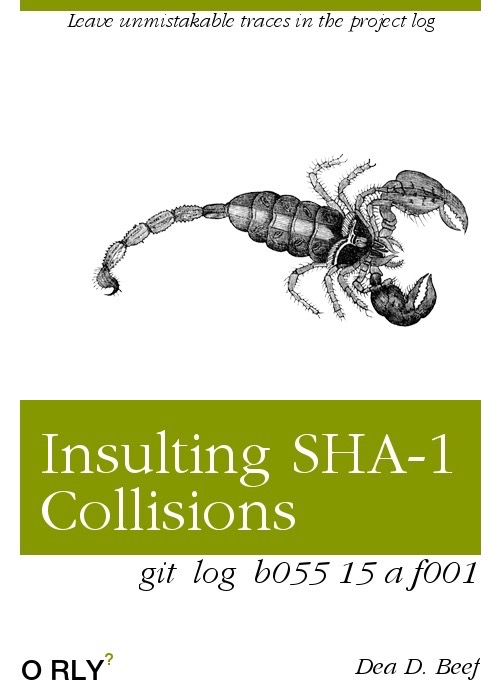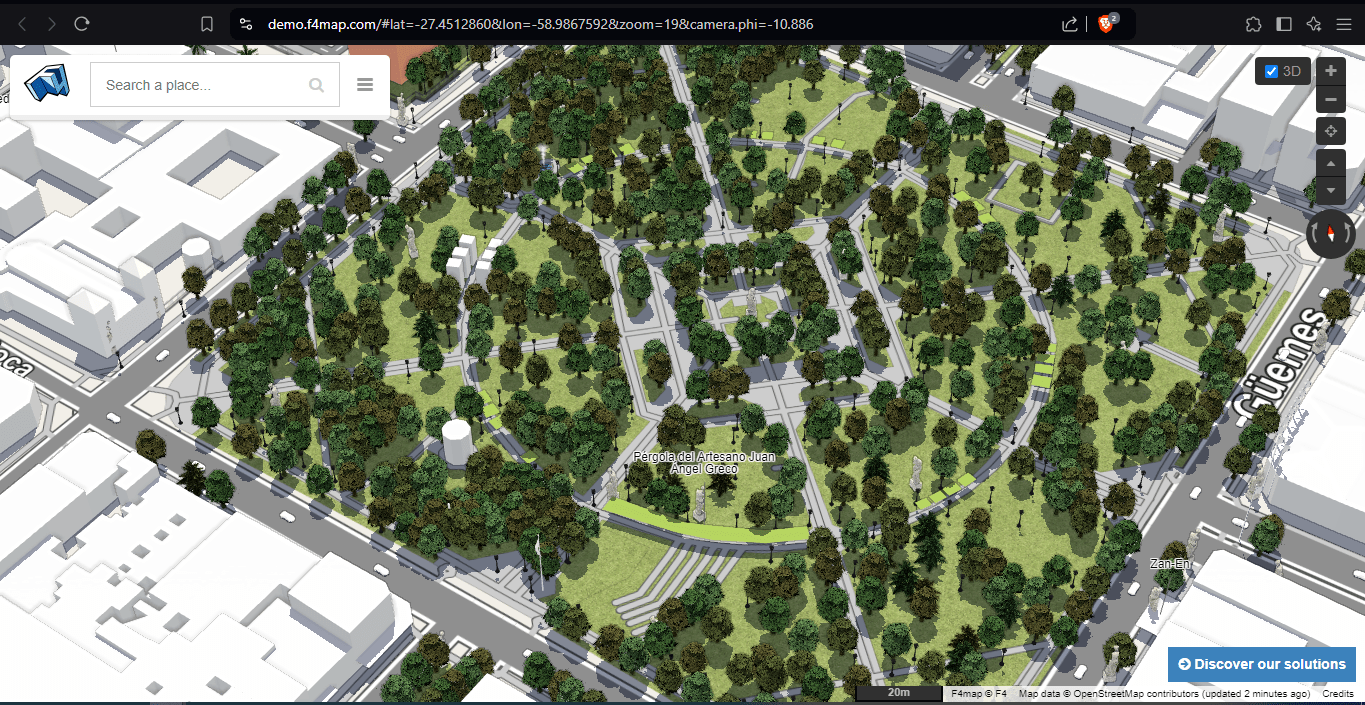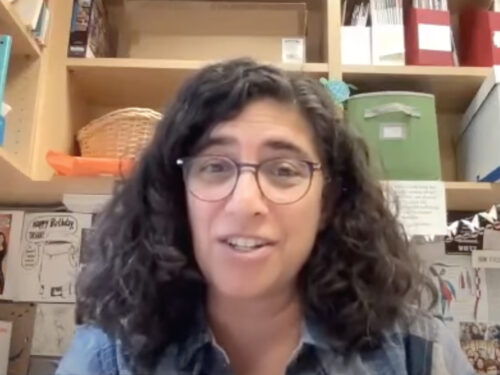| [[WM:TECHBLOG]] |
XML |
Tuesday, 1 October 2024 06:01 |
Tuesday, 1 October 2024 07:01 |
| All Things Linguistic |
XML |
Tuesday, 1 October 2024 06:01 |
Tuesday, 1 October 2024 07:01 |
| Andy Mabbett, aka pigsonthewing. |
XML |
Tuesday, 1 October 2024 06:01 |
Tuesday, 1 October 2024 07:01 |
| Anna writes |
XML |
Tuesday, 1 October 2024 06:01 |
Tuesday, 1 October 2024 07:01 |
| BaChOuNdA |
XML |
Tuesday, 1 October 2024 06:01 |
Tuesday, 1 October 2024 07:01 |
| Bawolff's rants |
XML |
Tuesday, 1 October 2024 06:01 |
Tuesday, 1 October 2024 07:01 |
| Between the Brackets: a MediaWiki Podcast |
XML |
Tuesday, 1 October 2024 06:01 |
Tuesday, 1 October 2024 07:01 |
| Blog on Taavi Väänänen |
XML |
Tuesday, 1 October 2024 06:01 |
Tuesday, 1 October 2024 07:01 |
| Blogs on Santhosh Thottingal |
XML |
Tuesday, 1 October 2024 06:01 |
Tuesday, 1 October 2024 07:01 |
| Bookcrafting Guru |
XML |
Tuesday, 1 October 2024 06:01 |
Tuesday, 1 October 2024 07:01 |
| brionv |
XML |
Tuesday, 1 October 2024 06:01 |
Tuesday, 1 October 2024 07:01 |
| Catching Flies |
XML |
Tuesday, 1 October 2024 06:01 |
Tuesday, 1 October 2024 07:01 |
| Clouds & Unicorns |
XML |
Tuesday, 1 October 2024 06:01 |
Tuesday, 1 October 2024 07:01 |
| Cogito, Ergo Sumana tag: Wikimedia |
XML |
Tuesday, 1 October 2024 06:01 |
Tuesday, 1 October 2024 07:01 |
| Cometstyles.com |
XML |
Tuesday, 1 October 2024 06:01 |
Tuesday, 1 October 2024 07:01 |
| Commonists |
XML |
Tuesday, 1 October 2024 06:01 |
Tuesday, 1 October 2024 07:01 |
| Content Translation Update |
XML |
Tuesday, 1 October 2024 06:01 |
Tuesday, 1 October 2024 07:01 |
| cookies & code |
XML |
Tuesday, 1 October 2024 06:01 |
Tuesday, 1 October 2024 07:01 |
| Damian's Dev Blog |
XML |
Tuesday, 1 October 2024 06:01 |
Tuesday, 1 October 2024 07:01 |
| Design at Wikipedia |
XML |
Tuesday, 1 October 2024 06:01 |
Tuesday, 1 October 2024 07:01 |
| dialogicality |
XML |
Tuesday, 1 October 2024 06:01 |
Tuesday, 1 October 2024 07:01 |
| Diff |
XML |
Tuesday, 1 October 2024 06:01 |
Tuesday, 1 October 2024 07:01 |
| Doing the needful |
XML |
Tuesday, 1 October 2024 06:01 |
Tuesday, 1 October 2024 07:01 |
| Durova |
XML |
Tuesday, 1 October 2024 06:01 |
Tuesday, 1 October 2024 07:01 |
| Ed's Blog |
XML |
Tuesday, 1 October 2024 06:01 |
Tuesday, 1 October 2024 07:01 |
| Einstein University |
XML |
Tuesday, 1 October 2024 06:01 |
Tuesday, 1 October 2024 07:01 |
| Endami |
XML |
Tuesday, 1 October 2024 06:01 |
Tuesday, 1 October 2024 07:01 |
| English Wikipedia administrators' newsletter |
XML |
Tuesday, 1 October 2024 06:01 |
Tuesday, 1 October 2024 07:01 |
| Fae |
XML |
Tuesday, 1 October 2024 06:01 |
Tuesday, 1 October 2024 07:01 |
| Federico Leva |
XML |
Tuesday, 1 October 2024 06:01 |
Tuesday, 1 October 2024 07:01 |
| FOSS – Small Town Tech |
XML |
Tuesday, 1 October 2024 06:01 |
Tuesday, 1 October 2024 07:01 |
| Gap-finding Project |
XML |
Tuesday, 1 October 2024 06:01 |
Tuesday, 1 October 2024 07:01 |
| Geni's Wikipedia Blog |
XML |
Tuesday, 1 October 2024 06:01 |
Tuesday, 1 October 2024 07:01 |
| http://ad.huikeshoven.org/feeds/posts/default/-/wiki |
XML |
Tuesday, 1 October 2024 06:01 |
Tuesday, 1 October 2024 07:01 |
| http://blog.maudite.cc/comments/feed |
XML |
Tuesday, 1 October 2024 06:01 |
Tuesday, 1 October 2024 07:01 |
| http://blog.pediapress.com/feeds/posts/default/-/wiki |
XML |
Tuesday, 1 October 2024 06:01 |
Tuesday, 1 October 2024 07:01 |
| http://blog.robinpepermans.be/feeds/posts/default/-/PlanetWM |
XML |
Tuesday, 1 October 2024 06:01 |
Tuesday, 1 October 2024 07:01 |
| http://bluerasberry.com/feed/ |
XML |
Tuesday, 1 October 2024 06:01 |
Tuesday, 1 October 2024 07:01 |
| http://brianna.modernthings.org/atom/?section=article |
XML |
Tuesday, 1 October 2024 06:01 |
Tuesday, 1 October 2024 07:01 |
| http://feeds.feedburner.com/ThoughtsForDeletion^ |
XML |
Tuesday, 1 October 2024 06:01 |
Tuesday, 1 October 2024 07:01 |
| http://magnusmanske.de/wordpress/?feed=rss2 |
XML |
Tuesday, 1 October 2024 06:01 |
Tuesday, 1 October 2024 07:01 |
| http://moriel.smarterthanthat.com/tag/mediawiki/feed/ |
XML |
Tuesday, 1 October 2024 06:01 |
Tuesday, 1 October 2024 07:01 |
| http://terrychay.com/category/work/wikimedia/feed |
XML |
Tuesday, 1 October 2024 06:01 |
Tuesday, 1 October 2024 07:01 |
| http://wikipediaweekly.org/feed/podcast |
XML |
Tuesday, 1 October 2024 06:01 |
Tuesday, 1 October 2024 07:01 |
| http://www.greenman.co.za/blog/?tag=wikimedia&feed=rss2 |
XML |
Tuesday, 1 October 2024 06:01 |
Tuesday, 1 October 2024 07:01 |
| http://www.phoebeayers.info/phlog/?cat=10&feed=rss2 |
XML |
Tuesday, 1 October 2024 06:01 |
Tuesday, 1 October 2024 07:01 |
| https://addshore.com/feed/atom/?tag=mediawiki%2Cwikimedia%2Cwikibase%2Cwikidata%2Cwikipedia%2Cwikidatacon |
XML |
Tuesday, 1 October 2024 06:01 |
Tuesday, 1 October 2024 07:01 |
| https://blog.ash.bzh/en/feed/ |
XML |
Tuesday, 1 October 2024 06:01 |
Tuesday, 1 October 2024 07:01 |
| https://blog.bluespice.com/tag/mediawiki/feed/ |
XML |
Tuesday, 1 October 2024 06:01 |
Tuesday, 1 October 2024 07:01 |
| https://blog.kevinpayravi.com/tag/wikimedia/feed/ |
XML |
Tuesday, 1 October 2024 06:01 |
Tuesday, 1 October 2024 07:01 |
| https://blog.wikimedia.de/tag/Wikidata+English/feed/ |
XML |
Tuesday, 1 October 2024 06:01 |
Tuesday, 1 October 2024 07:01 |
| https://hexmode.com/category/wmf/feed/atom/ |
XML |
Tuesday, 1 October 2024 06:01 |
Tuesday, 1 October 2024 07:01 |
| https://logic10.tumblr.com/ |
XML |
Tuesday, 1 October 2024 06:01 |
Tuesday, 1 October 2024 07:01 |
| https://lu.is/wikimedia/feed/ |
XML |
Tuesday, 1 October 2024 06:01 |
Tuesday, 1 October 2024 07:01 |
| https://mariapacana.tumblr.com/tagged/parsoid/rss |
XML |
Tuesday, 1 October 2024 06:01 |
Tuesday, 1 October 2024 07:01 |
| https://medium.com/feed/@nehajha |
XML |
Tuesday, 1 October 2024 06:01 |
Tuesday, 1 October 2024 07:01 |
| https://thewikipedian.net/feed/ |
XML |
Tuesday, 1 October 2024 06:01 |
Tuesday, 1 October 2024 07:01 |
| https://tttwrites.wordpress.com/category/wikimedia/feed/ |
XML |
Tuesday, 1 October 2024 06:01 |
Tuesday, 1 October 2024 07:01 |
| https://wandacode.com/category/outreachy-internship/feed/ |
XML |
Tuesday, 1 October 2024 06:01 |
Tuesday, 1 October 2024 07:01 |
| https://wikistrategies.net/category/wiki/feed/atom/ |
XML |
Tuesday, 1 October 2024 06:01 |
Tuesday, 1 October 2024 07:01 |
| https://wllm.com/tag/wikipedia/feed/ |
XML |
Tuesday, 1 October 2024 06:01 |
Tuesday, 1 October 2024 07:01 |
| https://www.guillaumepaumier.com/category/wikimedia/feed/ |
XML |
Tuesday, 1 October 2024 06:01 |
Tuesday, 1 October 2024 07:01 |
| https://www.residentmar.io/feed |
XML |
Tuesday, 1 October 2024 06:01 |
Tuesday, 1 October 2024 07:01 |
| https://www.wikiphotographer.net/category/wikimedia-commons/feed/ |
XML |
Tuesday, 1 October 2024 06:01 |
Tuesday, 1 October 2024 07:01 |
| in English Archives - Wikimedia Suomi |
XML |
Tuesday, 1 October 2024 06:01 |
Tuesday, 1 October 2024 07:01 |
| International Wikitrekk |
XML |
Tuesday, 1 October 2024 06:01 |
Tuesday, 1 October 2024 07:01 |
| Language and Translation |
XML |
Tuesday, 1 October 2024 06:01 |
Tuesday, 1 October 2024 07:01 |
| Laura Hale, Wikinews reporter |
XML |
Tuesday, 1 October 2024 06:01 |
Tuesday, 1 October 2024 07:01 |
| Leave it to the prose |
XML |
Tuesday, 1 October 2024 06:01 |
Tuesday, 1 October 2024 07:01 |
| Make love, not traffic. |
XML |
Tuesday, 1 October 2024 06:01 |
Tuesday, 1 October 2024 07:01 |
| Mark Rauterkus & Running Mates ponder current events |
XML |
Tuesday, 1 October 2024 06:01 |
Tuesday, 1 October 2024 07:01 |
| MediaWiki and Wikimedia – etc. etc. |
XML |
Tuesday, 1 October 2024 06:01 |
Tuesday, 1 October 2024 07:01 |
| MediaWiki Testing |
XML |
Tuesday, 1 October 2024 06:01 |
Tuesday, 1 October 2024 07:01 |
| MediaWiki – Chris Koerner |
XML |
Tuesday, 1 October 2024 06:01 |
Tuesday, 1 October 2024 07:01 |
| mediawiki – Hexmode's Weblog |
XML |
Tuesday, 1 October 2024 06:01 |
Tuesday, 1 October 2024 07:01 |
| MediaWiki – It rains like a saavi |
XML |
Tuesday, 1 October 2024 06:01 |
Tuesday, 1 October 2024 07:01 |
| MediaWiki – Ryan D Lane |
XML |
Tuesday, 1 October 2024 06:01 |
Tuesday, 1 October 2024 07:01 |
| Ministry of Wiki Affairs |
XML |
Tuesday, 1 October 2024 06:01 |
Tuesday, 1 October 2024 07:01 |
| Muddyb Mwanaharakati |
XML |
Tuesday, 1 October 2024 06:01 |
Tuesday, 1 October 2024 07:01 |
| Musings of Majorly |
XML |
Tuesday, 1 October 2024 06:01 |
Tuesday, 1 October 2024 07:01 |
| My Outreachy 2017 @ Wikimedia Foundation |
XML |
Tuesday, 1 October 2024 06:01 |
Tuesday, 1 October 2024 07:01 |
| NonNotableNatterings |
XML |
Tuesday, 1 October 2024 06:01 |
Tuesday, 1 October 2024 07:01 |
| Notes from the Bleeding Edge |
XML |
Tuesday, 1 October 2024 06:01 |
Tuesday, 1 October 2024 07:01 |
| Nothing three |
XML |
Tuesday, 1 October 2024 06:01 |
Tuesday, 1 October 2024 07:01 |
| Okinovo okýnko |
XML |
Tuesday, 1 October 2024 06:01 |
Tuesday, 1 October 2024 07:01 |
| Open Codex |
XML |
Tuesday, 1 October 2024 06:01 |
Tuesday, 1 October 2024 07:01 |
| Open Source Exile |
XML |
Tuesday, 1 October 2024 06:01 |
Tuesday, 1 October 2024 07:01 |
| Original Research |
XML |
Tuesday, 1 October 2024 06:01 |
Tuesday, 1 October 2024 07:01 |
| Pablo Garuda |
XML |
Tuesday, 1 October 2024 06:01 |
Tuesday, 1 October 2024 07:01 |
| Pau Giner |
XML |
Tuesday, 1 October 2024 06:01 |
Tuesday, 1 October 2024 07:01 |
| Personal – The Moon on a Stick |
XML |
Tuesday, 1 October 2024 06:01 |
Tuesday, 1 October 2024 07:01 |
| Phabricating Phabricator |
XML |
Tuesday, 1 October 2024 06:01 |
Tuesday, 1 October 2024 07:01 |
| Planet Wikimedia Archives - Entropy Wins |
XML |
Tuesday, 1 October 2024 06:01 |
Tuesday, 1 October 2024 07:01 |
| Planet Wikimedia – OpenMeetings.org | Announcements |
XML |
Tuesday, 1 October 2024 06:01 |
Tuesday, 1 October 2024 07:01 |
| planetwikimedia – copyrighteous |
XML |
Tuesday, 1 October 2024 06:01 |
Tuesday, 1 October 2024 07:01 |
| Political Bias on Wikipedia |
XML |
Tuesday, 1 October 2024 06:01 |
Tuesday, 1 October 2024 07:01 |
| Posts (#wikimedia) |
XML |
Tuesday, 1 October 2024 06:01 |
Tuesday, 1 October 2024 07:01 |
| Professional Wiki Blog |
XML |
Tuesday, 1 October 2024 06:01 |
Tuesday, 1 October 2024 07:01 |
| project-green-smw |
XML |
Tuesday, 1 October 2024 06:01 |
Tuesday, 1 October 2024 07:01 |
| ProWiki Blog |
XML |
Tuesday, 1 October 2024 06:01 |
Tuesday, 1 October 2024 07:01 |
| Ramblings by Paolo on Web2.0, Wikipedia, Social Networking, Trust,
Reputation, … |
XML |
Tuesday, 1 October 2024 06:01 |
Tuesday, 1 October 2024 07:01 |
| Rock drum |
XML |
Tuesday, 1 October 2024 06:01 |
Tuesday, 1 October 2024 07:01 |
| Routing knowledge |
XML |
Tuesday, 1 October 2024 06:01 |
Tuesday, 1 October 2024 07:01 |
| Sam Wilson's notebook |
XML |
Tuesday, 1 October 2024 06:01 |
Tuesday, 1 October 2024 07:01 |
| Sam Wilson: Wikimedia |
XML |
Tuesday, 1 October 2024 06:01 |
Tuesday, 1 October 2024 07:01 |
| Sammy's Blog |
XML |
Tuesday, 1 October 2024 06:01 |
Tuesday, 1 October 2024 07:01 |
| Score all the things |
XML |
Tuesday, 1 October 2024 06:01 |
Tuesday, 1 October 2024 07:01 |
| Scripts++ |
XML |
Tuesday, 1 October 2024 06:01 |
Tuesday, 1 October 2024 07:01 |
| Semantic MediaWiki – news |
XML |
Tuesday, 1 October 2024 06:01 |
Tuesday, 1 October 2024 07:01 |
| Sentiments of a Dissident |
XML |
Tuesday, 1 October 2024 06:01 |
Tuesday, 1 October 2024 07:01 |
| Stories by Megha Sharma on Medium |
XML |
Tuesday, 1 October 2024 06:01 |
Tuesday, 1 October 2024 07:01 |
| Sue Gardner's Blog |
XML |
Tuesday, 1 October 2024 06:01 |
Tuesday, 1 October 2024 07:01 |
| Tech News weekly bulletin feed |
XML |
Tuesday, 1 October 2024 06:01 |
Tuesday, 1 October 2024 07:01 |
| Technical & On-topic – Mike Baynton’s Mediawiki Dev Blog |
XML |
Tuesday, 1 October 2024 06:01 |
Tuesday, 1 October 2024 07:01 |
| The Academic Wikipedian |
XML |
Tuesday, 1 October 2024 06:01 |
Tuesday, 1 October 2024 07:01 |
| The Lego Mirror - MediaWiki |
XML |
Tuesday, 1 October 2024 06:01 |
Tuesday, 1 October 2024 07:01 |
| The life of James R. |
XML |
Tuesday, 1 October 2024 06:01 |
Tuesday, 1 October 2024 07:01 |
| The Signpost |
XML |
Tuesday, 1 October 2024 06:01 |
Tuesday, 1 October 2024 07:01 |
| The Speed of Thought |
XML |
Tuesday, 1 October 2024 06:01 |
Tuesday, 1 October 2024 07:01 |
| TheDJ writes |
XML |
Tuesday, 1 October 2024 06:01 |
Tuesday, 1 October 2024 07:01 |
| This Month in GLAM |
XML |
Tuesday, 1 October 2024 06:01 |
Tuesday, 1 October 2024 07:01 |
| Timo Tijhof |
XML |
Tuesday, 1 October 2024 06:01 |
Tuesday, 1 October 2024 07:01 |
| Ting's Wikimedia Blog |
XML |
Tuesday, 1 October 2024 06:01 |
Tuesday, 1 October 2024 07:01 |
| Tyler Cipriani: blog |
XML |
Tuesday, 1 October 2024 06:01 |
Tuesday, 1 October 2024 07:01 |
| Vinitha's blog |
XML |
Tuesday, 1 October 2024 06:01 |
Tuesday, 1 October 2024 07:01 |
| weekly – semanario – hebdo – 週刊 – týdeník – Wochennotiz – 주간 –
tygodnik |
XML |
Tuesday, 1 October 2024 06:01 |
Tuesday, 1 October 2024 07:01 |
| What is going on in Europe? |
XML |
Tuesday, 1 October 2024 06:01 |
Tuesday, 1 October 2024 07:01 |
| Wiki Education |
XML |
Tuesday, 1 October 2024 06:01 |
Tuesday, 1 October 2024 07:01 |
| Wiki Loves Monuments |
XML |
Tuesday, 1 October 2024 06:01 |
Tuesday, 1 October 2024 07:01 |
| Wiki Northeast |
XML |
Tuesday, 1 October 2024 06:01 |
Tuesday, 1 October 2024 07:01 |
| Wiki Playtime - Medium |
XML |
Tuesday, 1 October 2024 06:01 |
Tuesday, 1 October 2024 07:01 |
| wiki – David Gerard |
XML |
Tuesday, 1 October 2024 06:01 |
Tuesday, 1 October 2024 07:01 |
| wiki – Gabriel Pollard |
XML |
Tuesday, 1 October 2024 06:01 |
Tuesday, 1 October 2024 07:01 |
| wiki – Our new mind |
XML |
Tuesday, 1 October 2024 06:01 |
Tuesday, 1 October 2024 07:01 |
| wiki – stu.blog |
XML |
Tuesday, 1 October 2024 06:01 |
Tuesday, 1 October 2024 07:01 |
| wiki – The life on Wikipedia – A Wikignome's perspecive |
XML |
Tuesday, 1 October 2024 06:01 |
Tuesday, 1 October 2024 07:01 |
| wiki – Ziko's Blog |
XML |
Tuesday, 1 October 2024 06:01 |
Tuesday, 1 October 2024 07:01 |
| wiki-en – [[content|comment]] |
XML |
Tuesday, 1 October 2024 06:01 |
Tuesday, 1 October 2024 07:01 |
| Wikibooks News |
XML |
Tuesday, 1 October 2024 06:01 |
Tuesday, 1 October 2024 07:01 |
| Wikimedia Australia news |
XML |
Tuesday, 1 October 2024 06:01 |
Tuesday, 1 October 2024 07:01 |
| Wikimedia DC Blog |
XML |
Tuesday, 1 October 2024 06:01 |
Tuesday, 1 October 2024 07:01 |
| Wikimedia Design Blog |
XML |
Tuesday, 1 October 2024 06:01 |
Tuesday, 1 October 2024 07:01 |
| Wikimedia Europe |
XML |
Tuesday, 1 October 2024 06:01 |
Tuesday, 1 October 2024 07:01 |
| Wikimedia Foundation |
XML |
Tuesday, 1 October 2024 06:01 |
Tuesday, 1 October 2024 07:01 |
| Wikimedia on Kosta Harlan |
XML |
Tuesday, 1 October 2024 06:01 |
Tuesday, 1 October 2024 07:01 |
| Wikimedia Security Team |
XML |
Tuesday, 1 October 2024 06:01 |
Tuesday, 1 October 2024 07:01 |
| Wikimedia Status - Incident History |
XML |
Tuesday, 1 October 2024 06:01 |
Tuesday, 1 October 2024 07:01 |
| Wikimedia Tech News |
XML |
Tuesday, 1 October 2024 06:01 |
Tuesday, 1 October 2024 07:01 |
| Wikimedia | ഗ്രന്ഥപ്പുര |
XML |
Tuesday, 1 October 2024 06:01 |
Tuesday, 1 October 2024 07:01 |
| wikimedia – andré klapper's blog. |
XML |
Tuesday, 1 October 2024 06:01 |
Tuesday, 1 October 2024 07:01 |
| wikimedia – apergos' open musings |
XML |
Tuesday, 1 October 2024 06:01 |
Tuesday, 1 October 2024 07:01 |
| wikimedia – Bitterscotch |
XML |
Tuesday, 1 October 2024 06:01 |
Tuesday, 1 October 2024 07:01 |
| Wikimedia – DcK Area |
XML |
Tuesday, 1 October 2024 06:01 |
Tuesday, 1 October 2024 07:01 |
| wikimedia – Harsh Kothari |
XML |
Tuesday, 1 October 2024 06:01 |
Tuesday, 1 October 2024 07:01 |
| Wikimedia – Jan Ainali |
XML |
Tuesday, 1 October 2024 06:01 |
Tuesday, 1 October 2024 07:01 |
| wikimedia – millosh’s blog |
XML |
Tuesday, 1 October 2024 06:01 |
Tuesday, 1 October 2024 07:01 |
| wikimedia – Open World |
XML |
Tuesday, 1 October 2024 06:01 |
Tuesday, 1 October 2024 07:01 |
| wikimedia – Thomas Dalton |
XML |
Tuesday, 1 October 2024 06:01 |
Tuesday, 1 October 2024 07:01 |
| Wikimedia – Tim Starling's blog |
XML |
Tuesday, 1 October 2024 06:01 |
Tuesday, 1 October 2024 07:01 |
| Wikimedia – Witty's Blog |
XML |
Tuesday, 1 October 2024 06:01 |
Tuesday, 1 October 2024 07:01 |
| Wikinews Reports |
XML |
Tuesday, 1 October 2024 06:01 |
Tuesday, 1 October 2024 07:01 |
| Wikipedia & Linterweb |
XML |
Tuesday, 1 October 2024 06:01 |
Tuesday, 1 October 2024 07:01 |
| Wikipedia - nointrigue.com |
XML |
Tuesday, 1 October 2024 06:01 |
Tuesday, 1 October 2024 07:01 |
| Wikipedia Archives — Andy Mabbett, aka pigsonthewing. |
XML |
Tuesday, 1 October 2024 06:01 |
Tuesday, 1 October 2024 07:01 |
| Wikipedia Notes from User:Wwwwolf |
XML |
Tuesday, 1 October 2024 06:01 |
Tuesday, 1 October 2024 07:01 |
| Wikipedia – Aharoni in Unicode |
XML |
Tuesday, 1 October 2024 06:01 |
Tuesday, 1 October 2024 07:01 |
| wikipedia – Andrew Gray |
XML |
Tuesday, 1 October 2024 06:01 |
Tuesday, 1 October 2024 07:01 |
| Wikipedia – Blossoming Soul |
XML |
Tuesday, 1 October 2024 06:01 |
Tuesday, 1 October 2024 07:01 |
| Wikipedia – Bold household |
XML |
Tuesday, 1 October 2024 06:01 |
Tuesday, 1 October 2024 07:01 |
| wikipedia – Going GNU |
XML |
Tuesday, 1 October 2024 06:01 |
Tuesday, 1 October 2024 07:01 |
| Wikipedia – mlog |
XML |
Tuesday, 1 October 2024 06:01 |
Tuesday, 1 October 2024 07:01 |
| Wikipedia – ragesoss |
XML |
Tuesday, 1 October 2024 06:01 |
Tuesday, 1 October 2024 07:01 |
| wikipedia – The Longest Now |
XML |
Tuesday, 1 October 2024 06:01 |
Tuesday, 1 October 2024 07:01 |
| Wikipedian in Residence for Gender Equity at West Virginia
University |
XML |
Tuesday, 1 October 2024 06:01 |
Tuesday, 1 October 2024 07:01 |
| WikiProject Oregon |
XML |
Tuesday, 1 October 2024 06:01 |
Tuesday, 1 October 2024 07:01 |
| Wikisorcery |
XML |
Tuesday, 1 October 2024 06:01 |
Tuesday, 1 October 2024 07:01 |
| Wikistaycation |
XML |
Tuesday, 1 October 2024 06:01 |
Tuesday, 1 October 2024 07:01 |
| wikitech – domas mituzas |
XML |
Tuesday, 1 October 2024 06:01 |
Tuesday, 1 October 2024 07:01 |
| WMUK |
XML |
Tuesday, 1 October 2024 06:01 |
Tuesday, 1 October 2024 07:01 |
| Words and what not |
XML |
Tuesday, 1 October 2024 06:01 |
Tuesday, 1 October 2024 07:01 |
| Wow. So wikimedia. Such quality. Many testing. Very team. |
XML |
Tuesday, 1 October 2024 06:01 |
Tuesday, 1 October 2024 07:01 |
| Writing Within the Rules |
XML |
Tuesday, 1 October 2024 06:01 |
Tuesday, 1 October 2024 07:01 |
| XD @ WP |
XML |
Tuesday, 1 October 2024 06:01 |
Tuesday, 1 October 2024 07:01 |
| {{Hatnote}} |
XML |
Tuesday, 1 October 2024 06:01 |
Tuesday, 1 October 2024 07:01 |
| Ø |
XML |
Tuesday, 1 October 2024 06:01 |
Tuesday, 1 October 2024 07:01 |



















































































































![22nd century [ro] on the Romanian Wikipedia](http://web.archive.org./web/20241001071726im_/https://upload.wikimedia.org/wikipedia/commons/thumb/5/58/Cyborg_blue_neon_background.png/393px-Cyborg_blue_neon_background.png)
![Abchanchu [fr] on the French Wikipedia](http://web.archive.org./web/20241001071726im_/https://upload.wikimedia.org/wikipedia/commons/thumb/a/a1/Abchanchu.png/375px-Abchanchu.png)
![Afanc [fr] on the French Wikipedia](http://web.archive.org./web/20241001071726im_/https://upload.wikimedia.org/wikipedia/commons/thumb/8/86/Afanc.jpg/375px-Afanc.jpg)
![Anachronism [no] on the Norwegian Wikipedia](http://web.archive.org./web/20241001071726im_/https://upload.wikimedia.org/wikipedia/commons/thumb/5/5d/Abraham_Lincoln_at_Air_Force_One.jpg/375px-Abraham_Lincoln_at_Air_Force_One.jpg)
![Archimedes [ar] on the Arabic Wikipedia](http://web.archive.org./web/20241001071726im_/https://upload.wikimedia.org/wikipedia/commons/thumb/0/00/%D8%B3%D9%82%D8%B1%D8%A7%D8%B7_%D8%A8%D9%88%D8%A7%D8%B3%D8%B7%D8%A9_%D8%A7%D9%84%D8%B0%D9%83%D8%A7%D8%A1_%D8%A7%D9%84%D8%A7%D8%B5%D8%B7%D9%86%D8%A7%D8%B9%D9%8A.png/375px-%D8%B3%D9%82%D8%B1%D8%A7%D8%B7_%D8%A8%D9%88%D8%A7%D8%B3%D8%B7%D8%A9_%D8%A7%D9%84%D8%B0%D9%83%D8%A7%D8%A1_%D8%A7%D9%84%D8%A7%D8%B5%D8%B7%D9%86%D8%A7%D8%B9%D9%8A.png)


![Battle of Dhu al-Qassah [fr] on the French Wikipedia](http://web.archive.org./web/20241001071726im_/https://upload.wikimedia.org/wikipedia/commons/thumb/1/16/History_of_the_Arab_Conquest_01.png/375px-History_of_the_Arab_Conquest_01.png)
![Chuan Ralla [an] on the Aragonese Wikipedia](http://web.archive.org./web/20241001071726im_/https://upload.wikimedia.org/wikipedia/commons/thumb/2/27/Chuan_Ralla.png/500px-Chuan_Ralla.png)
![Cleopatra [cs] on the Czech Wikipedia](http://web.archive.org./web/20241001071726im_/https://upload.wikimedia.org/wikipedia/commons/thumb/b/b2/AI-Generated_Interpretation_of_Cleopatra_VII.jpg/375px-AI-Generated_Interpretation_of_Cleopatra_VII.jpg)
![Climate fiction [fr][uk] on the French and Ukrainian Wikipedias](http://web.archive.org./web/20241001071726im_/https://upload.wikimedia.org/wikipedia/commons/thumb/b/b3/Cyberpunk_city_with_not_enough_funds_to_protect_against_the_rising_sea%2C_using_the_polluted_water_for_cooler_air.jpg/375px-Cyberpunk_city_with_not_enough_funds_to_protect_against_the_rising_sea%2C_using_the_polluted_water_for_cooler_air.jpg)
![Colonization of Mars [fr] on the French Wikipedia](http://web.archive.org./web/20241001071726im_/https://upload.wikimedia.org/wikipedia/commons/thumb/8/86/A_city_on_Mars_under_a_glass_dome_with_forests%2C_fields%2C_lakes%2C_houses.jpg/375px-A_city_on_Mars_under_a_glass_dome_with_forests%2C_fields%2C_lakes%2C_houses.jpg)
![Cosso [gl] on the Galician Wikipedia](http://web.archive.org./web/20241001071726im_/https://upload.wikimedia.org/wikipedia/commons/thumb/6/6e/Cosso_%28deus%29_-_IA_Midjourney_versi%C3%B3n_1.png/375px-Cosso_%28deus%29_-_IA_Midjourney_versi%C3%B3n_1.png)
![Cyberpunk [hu] on the Hungarian Wikipedia](http://web.archive.org./web/20241001071726im_/https://upload.wikimedia.org/wikipedia/commons/thumb/2/20/City_Scene_in_the_style_of_Blade_Runner_01.jpg/375px-City_Scene_in_the_style_of_Blade_Runner_01.jpg)
![Dagon [he] on the Hebrew Wikipedia](http://web.archive.org./web/20241001071726im_/https://upload.wikimedia.org/wikipedia/commons/thumb/b/b9/StupendousMonsterOfNightmares.png/375px-StupendousMonsterOfNightmares.png)
![Danmei [fr] on the French Wikipedia](http://web.archive.org./web/20241001071726im_/https://upload.wikimedia.org/wikipedia/commons/thumb/d/d1/Two_danmei_husbands.jpg/375px-Two_danmei_husbands.jpg)
![Dystopia [es] on the Spanish Wikipedia](http://web.archive.org./web/20241001071726im_/https://upload.wikimedia.org/wikipedia/commons/thumb/1/12/Dystopia.png/375px-Dystopia.png)
![Global catastrophic risk [ha] on the Hausa Wikipedia](http://web.archive.org./web/20241001071726im_/https://upload.wikimedia.org/wikipedia/commons/thumb/8/87/Post-apocalyptic_landscape_on_an_industrial_exoplanet_%28recently_collapsed_civilization%29.jpg/375px-Post-apocalyptic_landscape_on_an_industrial_exoplanet_%28recently_collapsed_civilization%29.jpg)
![Golem [es] on the Spanish Wikipedia](http://web.archive.org./web/20241001071726im_/https://upload.wikimedia.org/wikipedia/commons/thumb/0/0e/AI_golem_waiting_for_tasks_and_providing_advice.jpg/375px-AI_golem_waiting_for_tasks_and_providing_advice.jpg)
![The Great God Pan [he] on the Hebrew Wikipedia](http://web.archive.org./web/20241001071726im_/https://upload.wikimedia.org/wikipedia/commons/thumb/c/ca/YoungGirlInWhitesSittingInLaboratory.png/375px-YoungGirlInWhitesSittingInLaboratory.png)
![Gwyn ap Nudd [fr] on the French Wikipedia](http://web.archive.org./web/20241001071726im_/https://upload.wikimedia.org/wikipedia/commons/thumb/2/2c/Gwynn_ap_Nudd.jpg/229px-Gwynn_ap_Nudd.jpg)
![Invisible religion [cs] on the Czech Wikipedia](http://web.archive.org./web/20241001071726im_/https://upload.wikimedia.org/wikipedia/commons/thumb/0/0a/Invisible_Religion_Drawing_AI.jpg/375px-Invisible_Religion_Drawing_AI.jpg)
![Iratxoak [ca] on the Catalan Wikipedia](http://web.archive.org./web/20241001071726im_/https://upload.wikimedia.org/wikipedia/commons/thumb/b/b4/Galtzagorri_%28euskal_mitologia%29_-_Midjourney_AI_bertsioa.png/336px-Galtzagorri_%28euskal_mitologia%29_-_Midjourney_AI_bertsioa.png)
![John F. Kennedy [rw] on the Kinyarwanda Wikipedia](http://web.archive.org./web/20241001071726im_/https://upload.wikimedia.org/wikipedia/commons/thumb/a/a1/John_F_Kennedy_in_watercolour.png/375px-John_F_Kennedy_in_watercolour.png)
![LHS 1140 b [ru] on the Russian Wikipedia](http://web.archive.org./web/20241001071726im_/https://upload.wikimedia.org/wikipedia/commons/thumb/1/1b/Possible_depiction_of_LHS_1140_b_landscape_with_black_grass_and_red_starlight.jpg/375px-Possible_depiction_of_LHS_1140_b_landscape_with_black_grass_and_red_starlight.jpg)
![Mikelats [ca][fr] on the Catalan and French Wikipedias](http://web.archive.org./web/20241001071726im_/https://upload.wikimedia.org/wikipedia/commons/thumb/6/69/Mikelats_%28euskal_mitologia%29_-_Midjourney_AI_bertsioa.png/375px-Mikelats_%28euskal_mitologia%29_-_Midjourney_AI_bertsioa.png)
![Mooring [sv] on the Swedish Wikipedia](http://web.archive.org./web/20241001071726im_/https://upload.wikimedia.org/wikipedia/commons/thumb/1/1f/Ang%C3%B6ring.jpg/375px-Ang%C3%B6ring.jpg)
![Preiddeu Annwfn [ru] on the Russian Wikipedia](http://web.archive.org./web/20241001071726im_/https://upload.wikimedia.org/wikipedia/commons/thumb/1/1e/Kaer_sidi.jpg/275px-Kaer_sidi.jpg)
![Raposa do aire [gl] on the Galician Wikipedia](http://web.archive.org./web/20241001071726im_/https://upload.wikimedia.org/wikipedia/commons/thumb/3/38/A_raposa_de_Mor%C3%A1s.jpg/375px-A_raposa_de_Mor%C3%A1s.jpg)
![Religious delusion [nl] on the Dutch Wikipedia](http://web.archive.org./web/20241001071726im_/https://upload.wikimedia.org/wikipedia/commons/thumb/f/f7/A_sign_from_God.png/375px-A_sign_from_God.png)
![Rendlesham Forest incident [es] on the Spanish Wikipedia](http://web.archive.org./web/20241001071726im_/https://upload.wikimedia.org/wikipedia/commons/thumb/d/d9/Rendlesham_Forest_UFO_incident_digital_CCBY_artwork.jpg/375px-Rendlesham_Forest_UFO_incident_digital_CCBY_artwork.jpg)
![Science fantasy [eu][es] on the Basque and Spanish Wikipedias](http://web.archive.org./web/20241001071726im_/https://upload.wikimedia.org/wikipedia/commons/thumb/2/20/An_elbish_city_on_an_exoplanet_%28science_fantasy%29.jpg/375px-An_elbish_city_on_an_exoplanet_%28science_fantasy%29.jpg)
![Security hacker [ar][es][he][ks][ko] on the Arabic, Spanish, Hebrew, Kashmiri, and Korean Wikipedias](http://web.archive.org./web/20241001071726im_/https://upload.wikimedia.org/wikipedia/commons/thumb/b/ba/Anonymous_Hacker.png/375px-Anonymous_Hacker.png)
![Silurian hypothesis [nl] on the Dutch Wikipedia](http://web.archive.org./web/20241001071726im_/https://upload.wikimedia.org/wikipedia/commons/thumb/e/ea/Silurian_hypothesis.jpg/375px-Silurian_hypothesis.jpg)
![Silurian hypothesis [fr][es] on the French and Spanish Wikipedias](http://web.archive.org./web/20241001071726im_/https://upload.wikimedia.org/wikipedia/commons/thumb/3/3c/The_annihilated_civilization.jpg/375px-The_annihilated_civilization.jpg)

![Sundiata Keita [es], recently removed from the Spanish Wikipedia](http://web.archive.org./web/20241001071726im_/https://upload.wikimedia.org/wikipedia/commons/thumb/5/56/Emperor_Sundiata.png/300px-Emperor_Sundiata.png)
![Technosignature [es] on the Spanish Wikipedia](http://web.archive.org./web/20241001071726im_/https://upload.wikimedia.org/wikipedia/commons/thumb/9/9e/A_colonized_comet_with_a_long_abandoned_reception_center_above_underground_facility_%28AI_art%29.jpg/375px-A_colonized_comet_with_a_long_abandoned_reception_center_above_underground_facility_%28AI_art%29.jpg)

![Unicorn [pt] on the Portuguese Wikipedia](http://web.archive.org./web/20241001071726im_/https://upload.wikimedia.org/wikipedia/commons/thumb/8/87/Unicorn2024.png/375px-Unicorn2024.png)
![A Voyage to Arcturus [he] on the Hebrew Wikipedia](http://web.archive.org./web/20241001071726im_/https://upload.wikimedia.org/wikipedia/commons/thumb/d/dc/VoyageToArcturusSeance.png/375px-VoyageToArcturusSeance.png)
![World Poetry Day [d] on many Wikipedias via Wikidata](http://web.archive.org./web/20241001071726im_/https://upload.wikimedia.org/wikipedia/commons/thumb/8/89/Elementos_representativos_de_la_poes%C3%ADa%2C.jpg/375px-Elementos_representativos_de_la_poes%C3%ADa%2C.jpg)
![Xan Quinto [ca] on the Catalan Wikipedia](http://web.archive.org./web/20241001071726im_/https://upload.wikimedia.org/wikipedia/commons/thumb/a/ae/Xan_Quinto_-_IA_Midjourney_versi%C3%B3n_1.png/305px-Xan_Quinto_-_IA_Midjourney_versi%C3%B3n_1.png)












Discuss this story